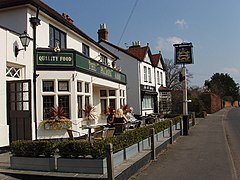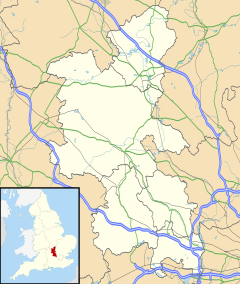Dorney Reach
| Dorney | |
|---|---|
 Village centre |
|
 Dorney Court – its Grade I listed building |
|
| Dorney shown within Buckinghamshire | |
| Area | 5.45 km2 (2.10 sq mi) |
| Population | 752 (2011 census) |
| • Density | 138/km2 (360/sq mi) |
| OS grid reference | SU9279 |
| Civil parish |
|
| District | |
| Shire county | |
| Region | |
| Country | England |
| Sovereign state | United Kingdom |
| Post town | WINDSOR |
| Postcode district | SL4 |
| Dialling code | 01628 |
| Police | Thames Valley |
| Fire | Buckinghamshire |
| Ambulance | South Central |
| EU Parliament | South East England |
| UK Parliament | |
Dorney is a village and civil parish in the South Bucks district of Buckinghamshire, England, bordering on the River Thames to the west and south and bisected by the Jubilee River. In 2011 it had a population of 752 and it is 2.3 miles (3.7 km) west of neighbouring Eton which is a slightly larger parish.
It includes a grade I listed manor house, Dorney Court and the largest rowing lake in the south of England, Dorney Lake. Altogether water accounts for 13% of Dorney, the highest proportion in Buckinghamshire.
Dorney Manor was mentioned in the Domesday book, and was famed for honey; it is named after the Saxon for "Island of Bees".
Dorney Court adjoins the centre of the village and has comparable grounds to other village centre properties. It was however the manor house so owned much of the land of the village until the late 18th century. It dates to the early Tudor period, its listing states "c. 1500, altered", and is made from a timber frame with red brick rather than wattle and daub infill its tile roof has old original tiles. It has bold star-shaped timbers and a large fireplace with panels from Faversham Abbey, Kent.
A social history account of its early history reveals the then adjoining Boveney manor at the southern extremity of the village of Burnham had a great oak tree cut down by an employee, saw revenge exacted by Dorney's employees, who the latter had placed in the '', and this man who had the tree cut down defended his conduct by declaring that at a court, held by the Steward of the Honour of Wallingford in Buckinghamshire, fifteen honest men had found Dorney to be a royal manor and that the green was therefore common, as waste grounds, to the tenants dwelling nearby. Thus it was legal to cut the tree down.
...
Wikipedia

